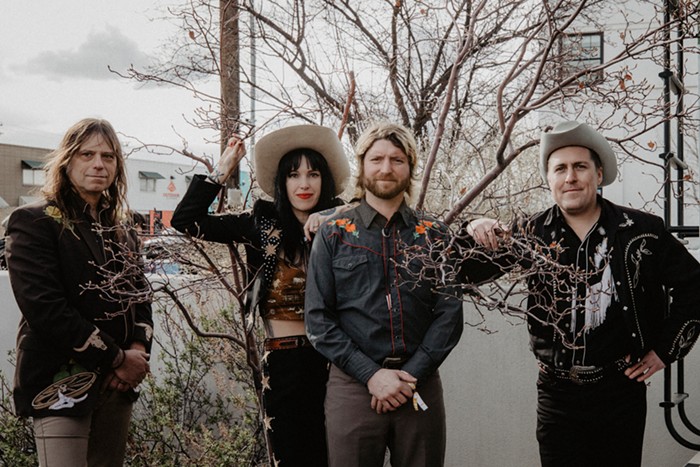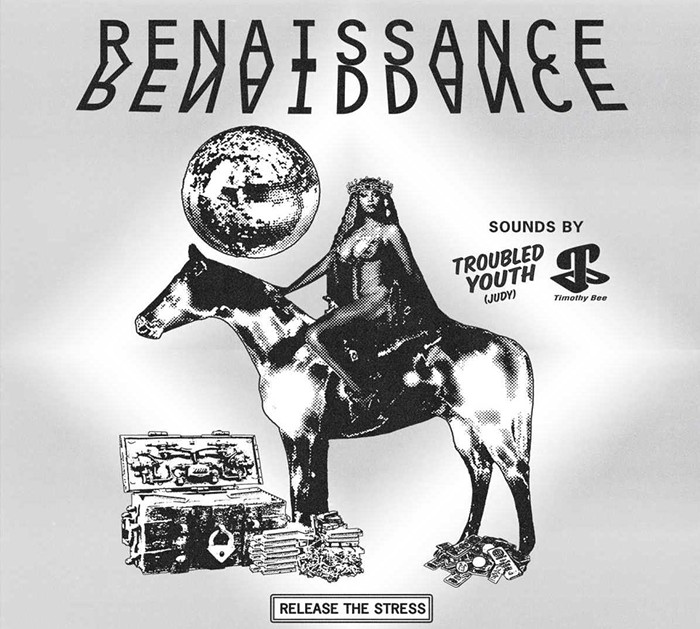JOHN WAYNE IS DEAD. Guts spill differently now. The battlefield is lurching away from blood and bodies, toward some digital ether. So long live Private Bradley Manning, a new American hero.
Accused of making public a stash of cables that ostensibly belong to the American people, Manning has been locked indefinitely in heightened and humiliating solitary confinement at a Marine Corps Base brig in Quantico, Virginia.
Manning's case has made relevant not only Julian Assange and WikiLeaks, but modern warfare, tolerance, punishment, and generation-defining challenges to the First and Fourth Amendments. Practically speaking, the value of the information Manning allegedly liberated pales in comparison to what his case represents. Yet from mainstream media to Occupy Wall Street, Manning has remained a relative blind spot in American culture. Perhaps for these reasons, or perhaps those all his own, Cass McCombs wrote a song about Manning earlier this year.
"I think that he's a really fascinating person," McCombs said by phone. "He struck me as the kind of character that you might hear of in an old gunfighter ballad or something like that. He's a real scapegoat. And it says more about us who carry out this [inaudible] criminal justice system than it does about him, really."
Unlike McCombs' more pensive and lilting, yet austere and transcendent folk echoes, "Bradley Manning" sears and illuminates with the likes of Bob Dylan's "Hurricane" and Neil Young's "Ohio." In "Manning," McCombs peeks at a life of modern disconnection, grasping at straws in a systematically sanctioned hopelessness. Full of indignation, McCombs sings, "Bradley carved, 'I want...' with a passion that's all too rare!"
McCombs and I spoke in the middle of his current US tour, and Manning was one of the few subjects that got him talking. Otherwise McCombs was clipped, obtuse, and almost combative. I've interviewed several other supposedly difficult or press-adverse artists (as well as US senators, presidential hopefuls, and professional athletes) and few were less amenable to the process. Quite simply, there were topics McCombs wouldn't shed light on.
So I will: McCombs' current band is tremendous. Ensemble players tether stunning chops. Tempos slow to time lapse, as each note grows round, ancient, tall. Then there is McCombs himself. With two arresting albums released this year and stunning songs like "Bradley Manning" appearing since, I suggested that he appears to be in the midst of an inspired, prolific period. Again, McCombs brushed the idea off. Same went for making records.
"I don't put a lot of effort into my recordings," he said, which explains the uneven production (but not the ever-present feeling) found particularly on the recently released Humor Risk. After another of many prolonged silences, as if creating space between himself and my question, McCombs proclaimed that recording songs no longer mattered. "No one buys records anymore," he explained. "The technology is completely outdated. It's going back to the instrument itself. And performance. Which is where it was for thousands of years." Never recording songs, he added, was a "testament." "I've been sitting on songs for, like, 10 years, you know? And I may never record them."
These were big, interesting ideas. Indeed, I got an honest feel for McCombs' music only after seeing him live. I wanted to explore, but little more was offered by him. If he didn't want to talk, I wondered, why did he take the interview? I wanted to push back, but ultimately wasn't willing to risk my relationship with his music. Perhaps he called my bluff. Or perhaps the answers don't matter.
Either way, in the end we'll likely know much less about McCombs than we do about Private Bradley Manning. Even if Manning never gets out.



















